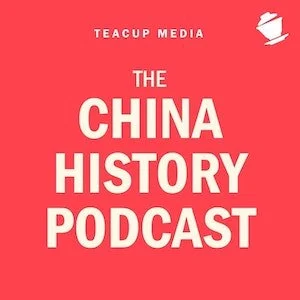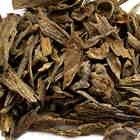Ep. 300 | The History of Chinese Alchemy (Part 2)
For this Milestone Episode in CHP history, we finish off our overview of the history of Chinese alchemy. Top billing this time will be the biggest name in the industry, Ge Hong. Other notable alchemists and alchemical works will be introduced up to the Ming, followed by a Lightning Round of emperors who died by alchemical poisoning.
Thanks to all of you who have supported me these past three hundred episodes and to all of you who discovered me only recently....永远感谢.
Listen On Your Favorite Podcast Player
Terms in Episode
| Pinyin/Term | Chinese | English/Meaning |
|---|---|---|
| Zōu Yǎn | 邹衍 | 305-240 BC, Chinese philosopher and spiritual writer best known as the representative thinker of the Yin and Yang School of philosophy |
| Yīn Yáng | 阴阳 | Yin is the feminine of negative principle in nature, the moon, shade, dull, gloomy. Yang is the masculine or positive principle in nature, the sun, positive, male |
| Liú Xiàng | 刘向 | 77-6 BC, Western Han era polymath, astronomer, historian, poet, politician, librarian, and writer. Well known for his bibliographic work in cataloging and editing the Han imperial library. |
| Hàn Emperor Xuān | 汉宣帝 | Emperor Xuan of Han, reigned 74 to 48 BC |
| Dàozàng | 道藏 | The Daoist Canon containing all the most important works of Daoism. Compiled first in 400 AD, then again in the Táng in 748. And again in 1016 during the Sòng and once more during the Míng in 1444 |
| Tàiqīng | 太清 | Great Clarity sect of Daoism |
| Tàiqīngjīng | 太清经 | The Book of Great Clarity |
| Jiǔdānjīng | 九丹经 | The Book of the Nine Elixirs |
| Jīnyèjīng | 金液经 | The Book of the Golden Liquor |
| Ānhuī | 安徽 | Province in China |
| Jiāngsū | 江苏 | Coastal province in China north of Zhejiang |
| Jiāngnán | 江南 | The region in China mostly south of the Yangzi River, including Jiangsu, Zhejiang and JIangxi |
| Lǐ Shǎojūn | 李少君 | Lived during reign of Han Wudi, (133 BCE) was a fangshi and the earliest known Chinese alchemist. In the early history of Chinese waidan (External Alchemy),Li is the only fangshi whose role is documented by both historical (for instance, Shiji) and alchemical (Baopuzi) sources. |
| Hàn Wǔdì | 汉武帝 | Western Han dynasty emperor who reigned 141 to 87 BC |
| Cāntóng Qì | 参同契 | the oldest complete alchemical book in existence, also called the Zhōuyì Cāntóng Qì (周易参同契) |
| Wèi Bóyáng | 魏伯阳 | A notable semi-legendary Chinese writer and alchemist of the Eastern Han Dynasty as well as the reputed author of The Kinship of the Three, and is noted as the first person to have documented the chemical composition of gunpowder in 142 AD. The "Cantong Qi" was probably written in stages from the Han dynasty onward until it approached its current form before 450 AD. |
| Gě Hóng | 葛洪 | 283-364(?) Chinese linguist, philosopher, physician, politician and alchemist. Writer of The Baopuzi |
| Jùróng | 句容 | a city midway between Nanjing and Zhènjiāng |
| Gě Xuán | 葛玄 | paternal grand uncle of Ge Hong. Ge Xuan was a legendary Daoist and alchemist, living 164-244 |
| Zuǒ Cí | 左慈 | In Romance of the Three Kingsoms, he was the character Wūjiǎo Xiānshēng…Master Black Horn. Zuǒ Cí was a Daoist master without peer who had these amazing magical powers |
| Hàn Zhāodì | 汉昭帝 | Son of Han Wudi, reigned 87-74 BC |
| Bàopǔzǐ | 抱朴子 | The "Hao" name of Ge Hong. His most famous alchemical work bears this title |
| Shénxiān Zhuàn | 神仙传 | a collection of biographies, attributed to Ge Hong, on eighty-four Daoist gods and immortals |
| hào | 号 | One’s hào is a moniker that is picked up along the way and was used as a form of address by one’s professional or artistic colleagues….rather than the personal name one was born with |
| Táng Dynasty | 唐朝 | Chinese dynasty that ran 618 to 907 AD with an interregnum for Wu Zetian's Zhou Dynasty that ran 690-705\ |
| Lǐ Bái | 李白 | Great Tang Dynasty poet, considered one of China's greatest |
| Guǎngzhōu | 广州 | Capital of Guangdong province |
| Gělǐngshān | 葛岭山 | A hill overlooking West Lake in Hangzhou where Gě Hóng once resided and where he conducted a number of his experiments |
| Shàngqīng | “Highest Purity” tradition of Daoism | |
| Lady Wèi Huácún | 魏华存 | She was a contemporary of Gě Hóng and lived during the Jìn Dynasty. According to legend she was a very devout and serious believer in Daoism. And one day she received a number of scriptures handed to her by certain Daoist immortals. And these words gifted to Lady Wèi, ended up forming the bedrock of the Shàngqīng sect of Daoism…and it was based in Máoshān 茅山…Mount Máo…not that far from where Gě Hóng grew up |
| Huáng Tíng Jīng | 黄庭经 | The Yellow Court Classic is attributed to Lady Wei and offered adherents a kind of a guidebook on Daoist meditation practices that did much to increase the health and longevity of the practitioner. More than anything else it emphasized meditation and self-cultivation and demonstrated how to achieve this |
| wàidān | 外丹 | External Alchemy, mainly concerned with producing elixirs and prolonging life through the ingestion of alchemical substabces |
| Nèidān | 内丹 | Nèi means inner….so it relied more on one’s internal powers that resided in humans to attain the powers that up to then, had been attempted through external alchemy |
| Táo Hóngjǐng | 陶弘景 | 456-536, another figure from China history who, in their day achieved so much renown across such a broad spectrum of the humanities, sciences, arts. He's called a founder of the Shàngqīng sect of Daois |
| Xuánzàng | 玄奘 | 602-664, 7th century Chinese Buddhist monk, scholar, traveler, translator. Most famous for his travels to India 629-645. |
| Liáng Wǔdì | 梁武帝 | Founding emperor of the Liang Dynasty. He reigned 502-549. |
| Suí Dynasty | 隋朝 | Dynasty that ran 581-618 |
| Sū Yuánmíng | wrote about potable medicinal gold in his noted work, “Discourse on the Contents of the Precious Treasury of the Earth” which contained fifteen kinds of medicinal gold that treated a number of maladies | |
| Sūn Sīmiǎo | 孙思邈 | Immortalized as the King of Medicine for his contributions to the science. Wrote several important works. Died 682 |
| Yàowáng | 药王 | The King of Medicine, a nickname of Sun Simiao |
| Dānjīngyào | 丹经药 | Essential Formulas of Alchemical Classics, a work compiled by Sun Simiao |
| Qín Shǐhuáng | 秦始皇 | 259-210 BC, the first Chinese emperor, ruler of the Qin Dynasty |
| Chén Shǎowēi | 陈少微 | Another Tang alchemist who focused his Wàidān efforts on the yin-yang aspects of refining cinnabar and creating an elixir from mercury |
| Xiànzōng | 唐宪宗 | Tang Emperor whjo reigned 805-820 |
| Mùzōng | 唐穆宗 | Tang Emperor whjo reigned 820-824 |
| Zhū Wén | 朱文 | Reigned as the founding emperor of the Later Liang Dynasty (907-912). A Chinese military general and politician, he officially put the Tang dynasty to the sword in 907 |
| Zhū Yǒuguī | 朱友珪 | Son of Zhu Wen ajnd emperor of Later Liang from 912-913 |
| Sòng Dynasty | 宋朝 | Dynasty that lasted 960-1279 |
| Zhēnzōng Emperor | 宋真宗 | Northern Song emperor who reigned 997-1022 |
| Wáng Jiè | 王玠 | Song-era Daoist scholar and alchemist Wáng Jiè 王玠. Emperor Zhenzong instructed Wáng Jiè to engage in the manufacture of alchemical gold |
| Jiājìng Emperor | Ming Dynasty emperor who reigned 1521-1567 | |
| Lǐ Shízhěn | 李时珍 | 1518-1593, compiler of the Compendium of Materia Medica |
| Běncǎo Gāngmù | 本草纲目 | the Compendium of Materia Medica, compiled by Li Shizhen during the Ming |
| Yōngzhèng | 雍正 | Qing Emperor from 1709-1722 |
| Qiánlóng | 乾隆 | Successor to Yongzheng, reigned 1735-1796 |

















his all took place in the final moments of the Warlord Era, right after the Central Plains War. This act perpetrated by warlord Sun Dianying 孙殿英 epitomized the venality of these men.